Along with his fellow Austrian émigré Erich von Stroheim, Otto Preminger enjoyed a long reign in Hollywood as the quintessence of the dictatorial European auteur. With his theatre work in Vienna having attracted attention from Broadway and Tinseltown, Preminger sailed to America in 1935 to begin a long relationship with Twentieth Century Fox.
Preminger directed several films before leaving Hollywood for New York, where his stage work drew critical huzzahs and a return ticket to Hollywood. This time Preminger scored with the proto-noir "Laura" (1944), which netted him an Oscar nomination. A string of stylish thrillers, including "Black Angel" (1945) and "Where the Sidewalk Ends" (1950), established him as a world-class filmmaker. Dying in 1986 from the ravages of Alzheimer's disease, Preminger's legacy endured, due to the legend of his larger-than-life personality, his unforgettable physical presence, and the films he had created during his lifetime.
Otto Ludwig Preminger was born in a German-speaking conclave of Wiznitz, Poland (later the Ukraine) on Dec. 5, 1905. His father, Markus Preminger, was a Galician Jew who had been appointed as a public prosecutor by Austro-Hungarian emperor Franz Josef I. With the political upheavals that lead ultimately to the onset of World War I, the Preminger family relocated to Graz, Austria, where Markus accepted the position of the imperial Attorney General, and ultimately to Vienna, seat of the Austro-Hungarian Empire.
Despite experiencing rampant anti-Semitism in the adopted city, the Preminger family prospered and Otto and his younger brother Ingo received an excellent Catholic education which included the study of Hebrew and Jewish history. The Preminger household was marked by erudition and high culture. In later life, Otto Preminger would adopt an aristocratic attitude and claim Vienna as his birthplace.
With Germany's defeat at the end of the First World War and the dissolution of the Empire, Markus Preminger went into private practice and the family was able to move into an exclusive section of Vienna.
Preminger attended the theatre three or four times a week, often skipping school to read plays in the library. The diagnosis of a heart murmur kept him out of sports, enabling his reclusive passions. He would ultimately conduct his own play readings, reserving the choicest roles for himself, and made his amateur theatrical debut in an open-air production of Shakespeare's "A Midsummer Night's Dream" in 1922.
Despite taking up the study of law to please his father, Preminger apprenticed himself to theatre manager Max Reinhardt and made his professional debut in a production of Carlo Goldoni's "The Servant of Two Masters" in 1924. His journeyman years as an actor took him to Prague in Czechoslovakia and Zurich in Switzerland. Suffering early from baldness, he changed his focus to directing.
As a director-manager back in Austria, he founded a theatre company and converted a former opera house into a performance space dubbed the New Vienna Playhouse. Ripples from the crash of the American stock market in 1929 dealt crippling blows to Preminger's enterprises, but he rebounded by taking an executive position with Max Reinhardt's company the following year.
In 1931, Preminger was given the opportunity to direct his first film, "Die Grosse Liebe" ("The Great Love"), which proved a modest success.
He was being courted to travel to Broadway with a successful German play when he was introduced to producer Joseph Schenck, cofounder of the newly minted Twentieth Century Fox film studio in Hollywood. Despite the fact that Preminger spoke no English, he was offered a studio contract and first class passage to America. After staging the Edward Wooll drama "Libel" on Broadway in December 1935, Preminger traveled to Hollywood in early 1936.
Heralded by his new employers as one of Europe's most distinguished directors, Preminger was feted by the likes of Gary Cooper, Joan Crawford, Greta Garbo, Mary Pickford and Charlie Chaplin. By this time, he had adopted the habit of shaving his head, which would become, along with his notoriously volatile temper, a career trademark. Despite the faith Fox had placed in its newest acquisition, Preminger was allowed to do little more than observe other directors for more than a year.
He made his English-language directorial debut with the forgettable musical comedy "Under Your Spell" (1936), a vehicle for opera singer Lawrence Tibbett. Grateful for the work but uninterested in the material, Preminger nonetheless delivered the picture under budget and ahead of schedule.
The economy with which Preminger delivered his assignment prompted studio head Darryl F. Zanuck to offer him the A-list project "Nancy Steele is Missing," to star Academy Award winner Wallace Beery. When Beery refused to work with the foreigner (the film was made in 1937 by George Marshall, with Victor McLachlan in the lead), Preminger was bumped to the B unit. His feature work remained unremarkable through the expiration of his Fox contract in 1938, by which time he had fallen out with Zanuck.
Returning to New York, he directed a successful revival of Sutton Vane's "Outward Bound" and oversaw John Barrymore's Broadway comeback in "My Dear Children." Preminger also made his Broadway acting debut as a sinister German consul in Clare Booth's "Margin for Error." The comedy ran for nearly a year, during which time Preminger lectured on acting and directing at Yale University.
Alternating directing for the stage with performing, Preminger made his feature film acting debut as a sympathetic Nazi officer in "The Pied Piper" (1942).
Though he had reservations about playing another German villain, Preminger agreed to reprise his Broadway role in Fox's big screen adaptation of "Margin for Error" (1943) with the caveat that he be allowed to direct. Though Ernst Lubitsch had first been offered the director's chair, Preminger countered that he would direct the film for free.
The studio was sufficiently pleased with Preminger's dailies to offer him a seven-year contract before principal photography had even been completed. The émigré knew his fortunes had reversed themselves when he attained American citizenship in August of that year.
On the hunt for a new project, Preminger picked a novel by Vera Casparay, a murder mystery set within Manhattan's fashionable high society. Though initially assigned as a mere producer on "Laura" (1944), Preminger soon replaced director Rouben Mamoulian, with whom he had frequently found himself at odds.
Starting from scratch with a new cinematographer, Preminger coaxed star-making performances out of relative newcomers Gene Tierney and Dana Andrews and theatre actors Clifton Webb and Vincent Price, while earning an Academy Award nomination for Best Director. "Laura" (1944) would remain one of Preminger's tentpole achievements, a tartly-scripted whodunit distinguished by the chiaroscuro style of postwar filmmaking that French critics would dub film noir.
Though he would direct a variety of films in the ensuing years, crime thrillers such as "Fallen Angel" (1945), "Whirlpool" (1949) and "Where the Sidewalk Ends" (1950) were his most distinctive accomplishments.
In 1944, Preminger fathered a child, Erik, from his short-lived affair with stripper Gypsy Rose Lee. Father and son would not meet until 1966.
For director Billy Wilder, Preminger again donned the uniform of a Gestapo officer to play a concentration camp commandant in "Stalag 17" (1950).
Though "The 13th Letter" (1951), his English language remake of the French hit "Le Corbeau" (1943), proved a box office disappointment, Preminger scored with the comedy "The Moon is Blue" (1953), starring William Holden and David Niven.
Made after Hollywood's abandonment of the censorious Production Code, the film was a cause célèbre for its frank language and was banned in Boston.
"River of No Return" (1954) paired Marilyn Monroe with Robert Mitchum and was a rare Preminger film to go over-budget and over-schedule; the film's success with moviegoers turned what had been a mere contractual obligation into another career win for Preminger.
During the making of "Carmen Jones" (1954), Preminger began a love affair with his African-American star Dorothy Dandridge, which lasted for four tumultuous years.
Though filmed entirely on the backlot, Preminger's "The Man with the Golden Arm" (1955) furthered the filmmaker's interest in exploring taboo themes - in this case, drug addiction.
Preminger's track record was hit-and-miss during this period. Though "Saint Joan" (1957) was critically reviled, the courtroom drama "Anatomy of a Murder" (1959) was widely considered one of his best.
After tackling the subject of homosexuality in the political drama "Advise and Consent" (1962), Preminger's star wattage began to dim.
The nearly three-hour "The Cardinal" (1963) was pilloried by critics as overlong and underwhelming and was remembered principally for the rancorous professional relationship Preminger shared with leading man Tom Tryon. Although he received another Academy Award nomination for Best Director, he also earned the whispered-industry nickname of Otto the Ogre.
Though a hit in England where it was made, the mystery "Bunny Lake is Missing" (1965) was a box office failure in America.
Worse yet, Preminger's Southern melodrama "Hurry Sundown" (1967) and his zany drug farce "Skidoo" (1968) were met with hostility by critics and indifference by moviegoers.
During this time, he poked fun at his dictatorial image by playing the Teutonic supervillain Mr. Freeze on the hit TV series "Batman" (ABC, 1966-68), but as a filmmaker he was regarded at that time as out of touch.
Preminger capped his career with the international thrillers "Rosebud" (1975) and "The Human Factor" (1979).
Injuries sustained in a 1980 traffic accident hastened his physical decline. Plagued by mini strokes and the onset of Alzheimer's disease, Otto Preminger spent his final year in a wheelchair before passing away on April 23, 1986, at the age of 80.
By Richard Harland Smith

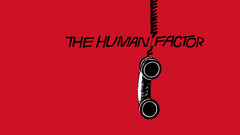


















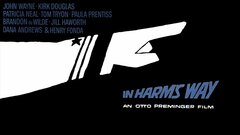














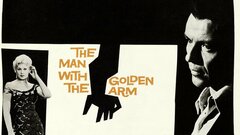





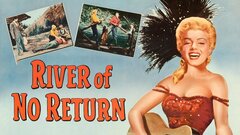











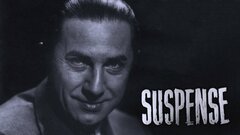







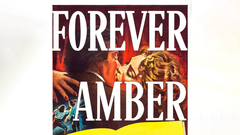
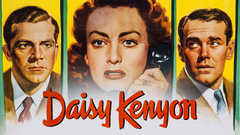






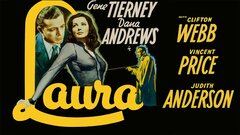



































![STALAG 17, Michael Moore [2], Don Taylor, William Holden, Otto Preminger, Sig Ruman, 1953](https://media.baselineresearch.com/images/105307/105307_small.jpg)

